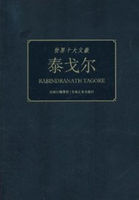"We must be gentle, now we are gentlemen."--SHAKSPEARE.
"Manners are not idle, but the fruit Of noble nature and of loyal mind."--TENNYSON.
"A beautiful behaviour is better than a beautiful form; it gives a higher pleasure than statues and pictures; it is the finest of the fine arts."--EMERSON.
"Manners are often too much neglected; they are most important to men, no less than to women.... Life is too short to get over a bad manner; besides, manners are the shadows of virtues."--THEREV. SIDNEY SMITH.
Manner is one of the principal external graces of character. It is the ornament of action, and often makes the commonest offices beautiful by the way in which it performs them. It is a happy way of doing things, adorning even the smallest details of life, and contributing to render it, as a whole, agreeable and pleasant.
Manner is not so frivolous or unimportant as some may think it to be; for it tends greatly to facilitate the business of life, as well as to sweeten and soften social intercourse. "Virtue itself," says Bishop Middleton, "offends, when coupled with a forbidding manner."Manner has a good deal to do with the estimation in which men are held by the world; and it has often more influence in the government of others than qualities of much greater depth and substance. A manner at once gracious and cordial is among the greatest aids to success, and many there are who fail for want of it. (1) For a great deal depends upon first impressions; and these are usually favourable or otherwise according to a man's courteousness and civility.
While rudeness and gruffness bar doors and shut hearts, kindness and propriety of behaviour, in which good manners consist, act as an "open sesame" everywhere. Doors unbar before them, and they are a passport to the hearts of everybody, young and old.
There is a common saying that "Manners make the man;" but this is not so true as that "Man makes the manners." A man may be gruff, and even rude, and yet be good at heart and of sterling character;yet he would doubtless be a much more agreeable, and probably a much more useful man, were he to exhibit that suavity of disposition and courtesy of manner which always gives a finish to the true gentleman.
Mrs. Hutchinson, in the noble portraiture of her husband, to which we have already had occasion to refer, thus describes his manly courteousness and affability of disposition:- "I cannot say whether he were more truly magnanimous or less proud; he never disdained the meanest person, nor flattered the greatest; he had a loving and sweet courtesy to the poorest, and would often employ many spare hours with the commonest soldiers and poorest labourers; but still so ordering his familiarity, that it never raised them to a contempt, but entertained still at the same time a reverence and love of him." (2)A man's manner, to a certain extent, indicates his character. It is the external exponent of his inner nature. It indicates his taste, his feelings, and his temper, as well as the society to which he has been accustomed. There is a conventional manner, which is of comparatively little importance; but the natural manner, the outcome of natural gifts, improved by careful self-culture, signifies a great deal.
Grace of manner is inspired by sentiment, which is a source of no slight enjoyment to a cultivated mind. Viewed in this light, sentiment is of almost as much importance as talents and acquirements, while it is even more influential in giving the direction to a man s tastes and character. Sympathy is the golden key that unlocks the hearts of others. It not only teaches politeness and courtesy, but gives insight and unfolds wisdom, and may almost be regarded as the crowning grace of humanity.
Artificial rules of politeness are of very little use. What passes by the name of "Etiquette" is often of the essence of unpoliteness and untruthfulness. It consists in a great measure of posture-making, and is easily seen through. Even at best, etiquette is but a substitute for good manners, though it is often but their mere counterfeit.
Good manners consist, for the most part, in courteousness and kindness. Politeness has been described as the art of showing, by external signs, the internal regard we have for others.
But one may be perfectly polite to another without necessarily having a special regard for him. Good manners are neither more nor less than beautiful behaviour. It has been well said, that "a beautiful form is better than a beautiful face, and a beautiful behaviour is better than a beautiful form; it gives a higher pleasure than statues or pictures--it is the finest of the fine arts."The truest politeness comes of sincerity. It must be the outcome of the heart, or it will make no lasting impression; for no amount of polish can dispense with truthfulness. The natural character must be allowed to appear, freed of its angularities and asperities. Though politeness, in its best form, should (as St.
Francis de Sales says) resemble water--"best when clearest, most simple, and without taste,"--yet genius in a man will always cover many defects of manner, and much will be excused to the strong and the original. Without genuineness and individuality, human life would lose much of its interest and variety, as well as its manliness and robustness of character.















